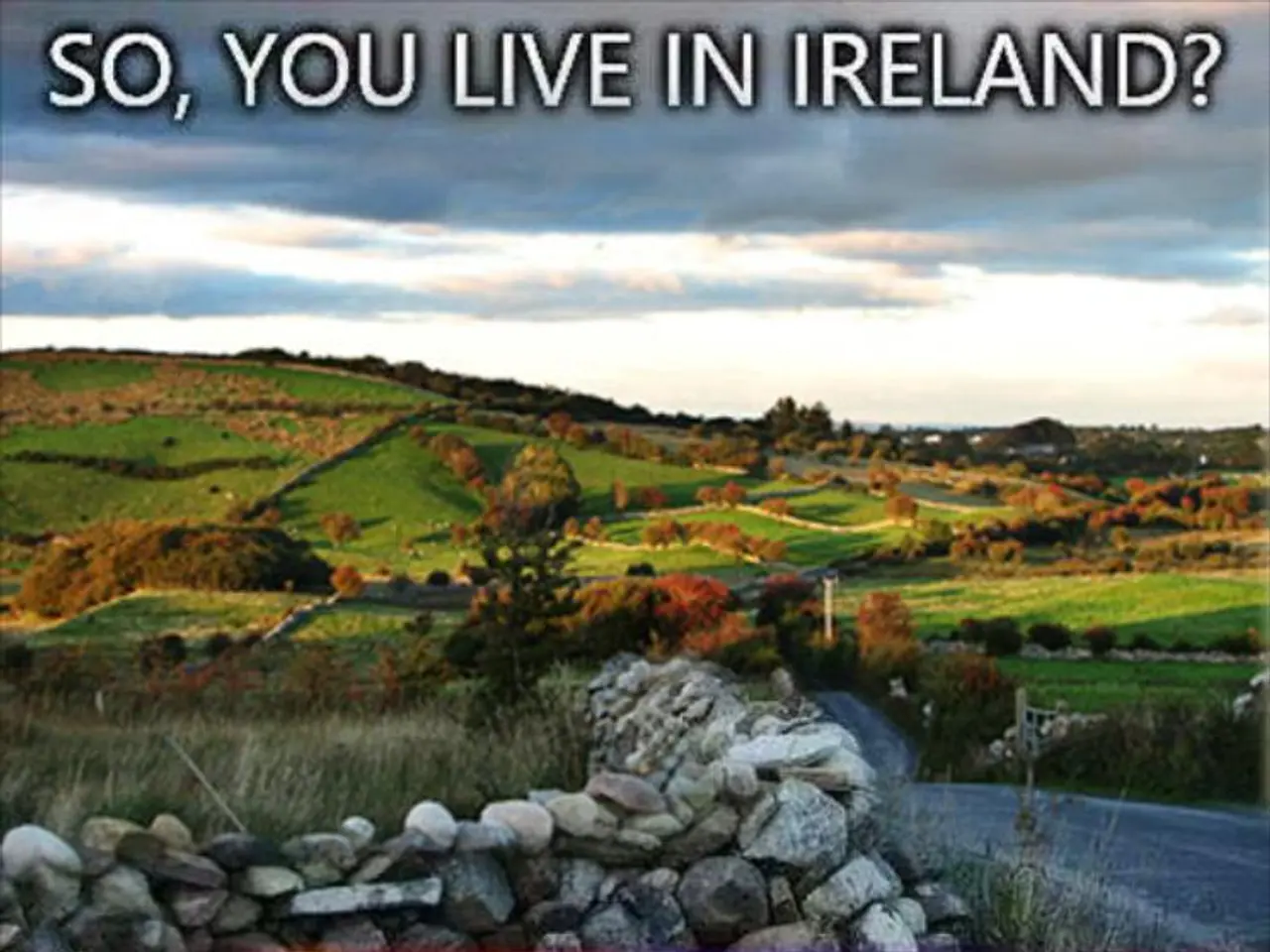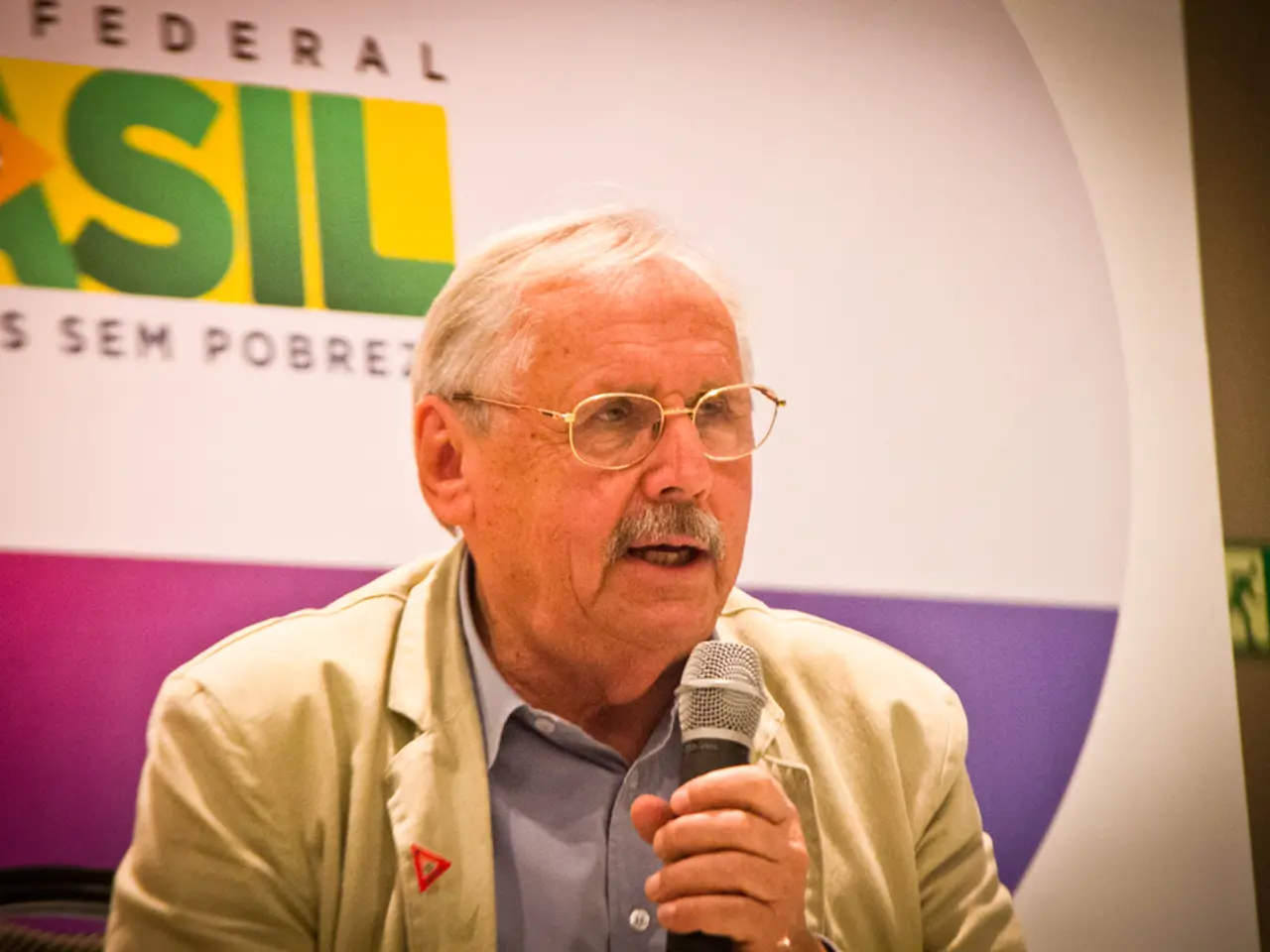Diplomats from the European Union convene in Brussels to debate on enacting penalties against Russia and addressing the ongoing conflict in Gaza. - Diplomats from the European Union deliberate on penalties towards Russia and the Gaza conflict in a meeting held in Brussels.
In a meeting of EU Foreign Ministers in Brussels, the adoption of the 18th sanctions package against Russia has hit a snag. Slovakia, heavily reliant on Russian gas, has expressed concerns about potential disruptions to its energy supplies and potential legal and financial repercussions from Gazprom, should the sanctions impact their contractual obligations[1][2][5].
Slovakia's Prime Minister, Robert Fico, has maintained his objection to the EU Commission's plan to ban the import of Russian gas, citing the country's significant reliance on Russian energy supplies. The Slovakian government is locked into a long-term contract with Gazprom until 2034, making it heavily dependent on Russian energy[3].
The Slovakian concerns are twofold. Firstly, the country is seeking guarantees for future energy supplies to mitigate potential disruptions that could arise from imposing sanctions on Russia. This is crucial for maintaining stability in Slovakia's energy sector, which is heavily reliant on Russian gas[4].
Secondly, Slovakia is concerned about potential legal and financial repercussions from Gazprom, should the sanctions impact their contractual obligations. Slovakia wants protection from possible arbitration by Gazprom, which could result in financial penalties if the sanctions are seen as a breach of contract[4].
These concerns have led Slovakia to make its consent to the sanctions contingent on addressing these issues, effectively blocking the unanimous agreement required for the EU to adopt the new sanctions package[1].
Meanwhile, discussions about the EU Association Agreement with Israel are also on the table. The call to suspend the agreement is due to Israel's actions in the Gaza Strip[6]. Several countries have voiced their support for this suspension, while others are considering various proposals for the agreement[7].
The EU Foreign Ministers, including Kaja Kallas and Gunther Krichbaum, are currently engaged in these discussions[8][9]. The 18th sanctions package against Russia remains under discussion, with the United States expressing its support for the adoption of the package[10]. However, the reasons for the resistance to the sanctions package, as well as the call to suspend the EU Association Agreement with Israel, are not addressed in this paragraph.
[1] https://www.reuters.com/business/energy/slovakia-says-will-not-support-eu-gas-embargo-russia-2021-05-18/ [2] https://www.bloombergquint.com/global-economics/slovakia-s-russia-gas-dependence-poses-challenge-to-eu-sanctions [3] https://www.reuters.com/world/europe/slovakia-says-it-will-not-agree-eu-gas-embargo-russia-2021-05-18/ [4] https://www.reuters.com/business/energy/slovakia-says-will-not-support-eu-gas-embargo-russia-2021-05-18/ [5] https://www.bloombergquint.com/global-economics/slovakia-s-russia-gas-dependence-poses-challenge-to-eu-sanctions [6] https://www.reuters.com/world/middle-east/european-union-ministers-discuss-sanctions-against-russia-israel-2021-05-18/ [7] https://www.reuters.com/world/middle-east/european-union-ministers-discuss-sanctions-against-russia-israel-2021-05-18/ [8] https://www.reuters.com/world/europe/slovakia-says-it-will-not-agree-eu-gas-embargo-russia-2021-05-18/ [9] https://www.reuters.com/world/middle-east/european-union-ministers-discuss-sanctions-against-russia-israel-2021-05-18/ [10] https://www.reuters.com/world/europe/us-backs-eu-plan-impose-18th-round-sanctions-against-russia-2021-05-18/
- Slovakia's concerns about potential disruptions to its energy supplies and potential legal and financial repercussions from Gazprom, in relation to the EU Commission's plan to ban the import of Russian gas, highlight the importance of cooperation policy within EC countries, particularly in the realm of general-news.
- The EU Foreign Ministers, engaged in discussions about the EU Association Agreement with Israel and the 18th sanctions package against Russia, are experiencing a divide in opinions, underscoring the complexity of cooperation policy within the EC in response to global political events.








